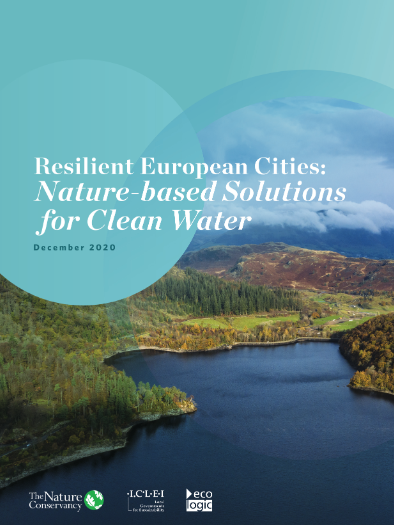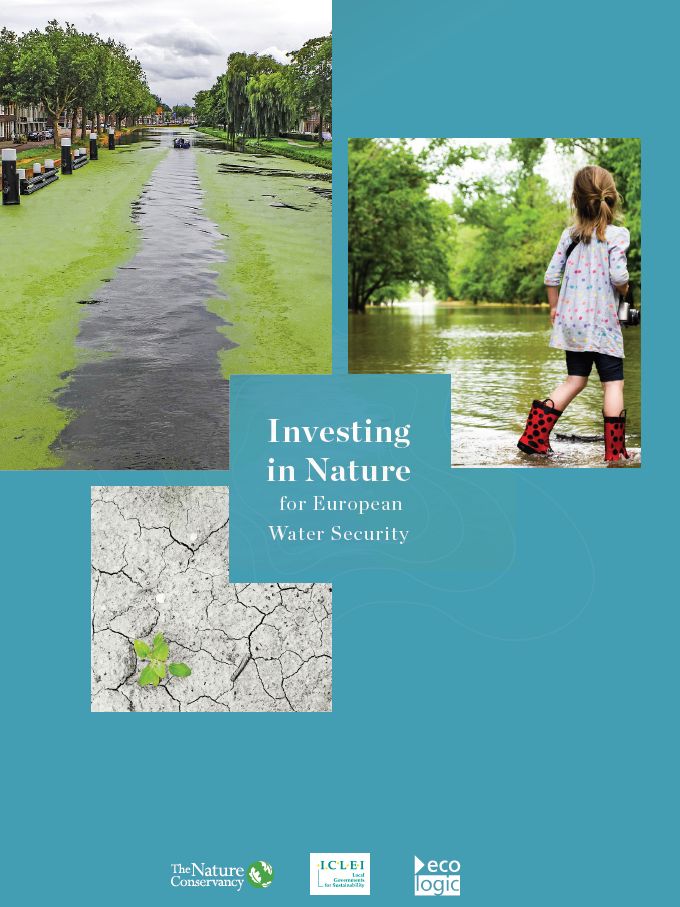Diffuse pollution is one of the key reasons European water bodies are failing to meet environmental objectives as specified in the EU Water Framework Directive (WFD). Outbreaks of toxic green algae affect rivers, lakes and coastal waters creating so-called "dead zones" where no aquatic life can thrive. Such outbreaks are by-products of dangerously increasing nutrient levels in water. Nutrient and soil losses have been recognised as challenges for decades across Europe and have been a key driver for freshwater biodiversity losses. With climate change, these challenges are likely to get worse: higher temperatures, lower river flows and more frequent and more violent flooding events. Other human-induced changes (such as dams and weirs) have modified the course of rivers and affected their natural flows.
This report examines how European cities can turn to nature-based solutions (NbS) to protect the water resources on which they depend, contributing to improving environmental quality in upstream watersheds. Specific objectives include:
- Identifying European cities that are particularly exposed to diffuse pollution due to changes in land use and poor land management practices;
- Assessing the potential for a selected range of nature-based solutions to mitigate diffuse pollution challenges and generate benefits for people and nature, when deployed at scale;
- Helping water sector stakeholders, policymakers, funders and financiers to identify practical ways to prioritise and deploy investments in nature-based solutions for water security (NbS-WS) in Europe.
Ecologic Institute and its partner EMVIS Consultant Engineers have supported The Nature conservancy (TNC) in the preparation of this report, in particular by identifying European cities relevant for analysis and supporting the development of the methodology to assess the effectiveness and costs of NbS-WS implementation.





